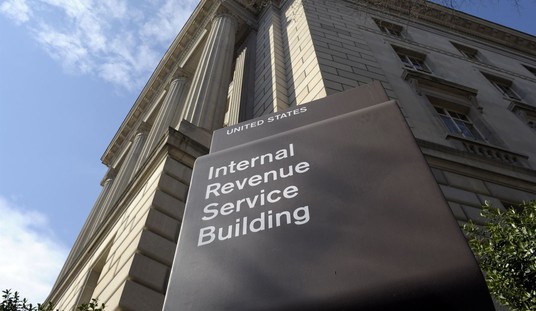This piece is a bit more unconventional than his usual work, but Michael Shellenberger was interested in exploring how climate alarmism has become a lucrative industry in the media. It goes beyond ‘fear sells’ and ‘if it bleeds it leads’ models. It’s panic pornography in its worst form, so bad that one in five children in the United Kingdom suffered nightmares about our impending doom from climate change, manufactured by the media.
He used the recent Texas floods as an example, a tragic event where storms ripped through central Texas, flooding the Guadalupe River in Kerr County, killing at least 100 people. That body count is destined to rise. The river rose 20-plus feet in 90 minutes. The media ran with this cockamamie narrative that it was Donald Trump’s fault due to cuts to NOAA and the National Weather Service, all of which don’t go into effect until next year. Then, there was the ‘NWS was short-staffed,’ which was also debunked—NWS had extra staffers for this system. They also sent alerts; the problem is that no one got them. This area doesn’t have a flood warning system. When it was initially pitched, the public was not keen on the cost.
Within minutes of Texas floods killing dozens of girls, the media said it was because of Trump budget cuts and climate change. In truth, the deaths occurred in “one of the highest flood-prone regions in the entire state,” warnings were issued, and the underlying cause was the… https://t.co/5FPzWWo9NZ pic.twitter.com/ACkGNQpgPl
— Michael Shellenberger (@shellenberger) July 7, 2025
Shellenberger noted that floods aren’t new, they’re not caused by climate change, and other nations that have been subjected to this natural disaster have adapted. Bangladesh was flood central, but it invested heavily in flood prevention protocols and an elaborate, multi-layered flood warning system, which has saved countless lives. He cites Cyclone Sitrang in 2022 as an example, where the death toll was dramatically reduced by the nation’s flood warning system, which successfully evacuated a million people out of harm’s way. Yet, flood control dates to ancient Mesopotamia.
Recommended
He rehashes why this is a good model for the fake news press, but then fleshes out the cultish aspects to the climate change clowns. These people may not be religious, but they’re ideological in their way. Like the Sovie Uniont, their church is the state, and the power to bend any institution or anyone to its will (via Public):
Another part of the climate narrative is strictly ideological. Climate alarmism gives radical Malthusian activists and intellectuals who view Western civilization as inherently destructive a moral justification for demanding its dismantling. They frame fossil fuels not just as a technical problem but as a symbol of greed, colonialism, and inequality. Under this view, climate change becomes a vehicle for broader political goals, redistribution of wealth, centralization of power, and permanent subsidies for green industries aligned with their agenda. Instead of focusing on practical solutions like adaptation, infrastructure, and innovation, these ideologues promote a vision of collapse and forced transformation. The climate crisis, in their hands, becomes less about physics and more about power.
Part of the climate alarmism discourse functions as a form of secularized Christianity. It follows a familiar structure: humanity has sinned (by burning fossil fuels), the planet now suffers as punishment (through floods, fires, and storms), and salvation can only come through repentance and sacrifice (by giving up consumption, flying less, eating plants, and trusting in technocratic authorities). This moral framework replaces God with “the science,” sin with carbon emissions, and redemption with policy obedience. Like religious movements of the past, it promises both judgment and deliverance, but only for the righteous. It channels guilt, fear, and the desire for meaning into a narrative that demands personal purity and societal transformation. While genuine environmental concerns drive many activists, the emotional energy behind the movement often draws more from theology than from data.
But the apocalyptic climate discourse differs from Christianity in fundamental ways. Traditional Christianity offers forgiveness, hope, and the possibility of redemption through the gift of grace. Climate alarmism, by contrast, often offers no forgiveness, only permanent guilt and endless sacrifice. In Christianity, an individual can repent and be saved; in climate ideology, the individual remains complicit, regardless of how many carbon offsets they purchase or how strictly they follow the rules. Christianity locates ultimate authority in a transcendent God; climate ideology places it in expert institutions and bureaucratic consensus. Where Christianity separates sin from the sinner, allowing for mercy, climate alarmism tends to treat dissent as heresy and skeptics as morally corrupt. The result is a belief system that mimics the structure of religion but replaces its spiritual core with politics, fear, and control.
[…]
The irony is that their alarmism often showcases their ignorance, especially when it comes to the long, practical history of water management and flood control. While they warn that rising seas and heavier rains make catastrophe inevitable, they overlook the fact that humans have successfully confronted these challenges for millennia. As I noted, ancient civilizations in Mesopotamia, the Indus Valley, China, and Rome constructed canals, levees, dikes, and aqueducts to harness rivers and safeguard cities. In the modern era, countries such as the United States, the Netherlands, and Bangladesh have significantly reduced flood-related deaths through the implementation of early warning systems, basic infrastructure, and coordinated evacuation plans.
Rising secularism, overprotective parenting, indulgent education, and the decline of reading have weakened the public’s ability to think historically and critically. Social media amplifies this trend by rewarding emotion over reflection and fear over facts. Without religious frameworks, many people turn to climate activism for a sense of purpose and morality. Without schools that demand rigor or resilience, children learn to fear complexity and retreat into simplistic narratives. Without books and historical knowledge, students lose perspective on how societies have solved problems like floods and natural disasters before. Those cultural forces feed climate alarmism and make it harder to challenge. People absorb panic more easily than context. As long as these trends continue, the drivers of climate fear will grow stronger and more entrenched.
Happily, we are also seeing a massive backlash against climate alarmism, as the 2024 election of Donald Trump made clear.
[…]
The more the media amplifies climate alarmism, the more it undermines its influence and credibility. This outcome is not just political, it’s cultural and psychological. The media didn’t just report on this narrative; it created it, fed it, and enforced its boundaries. It turned skepticism into sin, and consensus into dogma. However, as this narrative becomes increasingly extreme and detached from reality, more people walk away. Readers turn to independent voices. Trust collapses. Subscriptions fall. The backlash grows. The same media institutions that sowed fear and moral panic now watch as their cultural power shrinks, and that may be the healthiest development of all. Today, just 31 percent of the American people say they trust the media.
As such, things have the potential to change for the better, both in discrediting the climate apocalypse narrative and in restoring a more grounded approach to energy and natural disasters. The exposure of exaggerated claims, the collapse of media trust, and the rise of populist backlash have already begun to shift the conversation. People are starting to reject the notion that every flood, fire, or storm is evidence of societal collapse.
Yes, agreed, Mr. Shellenberger, but the endless stream of schadenfreude and people wishing misery on those afflicted by the floods remains tough to stomach. How do you live with people who are so gleeful about seeing dead campers killed in these floods? How can we reconcile with those who think we deserve to die for voting against their list of acceptable candidates? You can’t.

























Join the conversation as a VIP Member